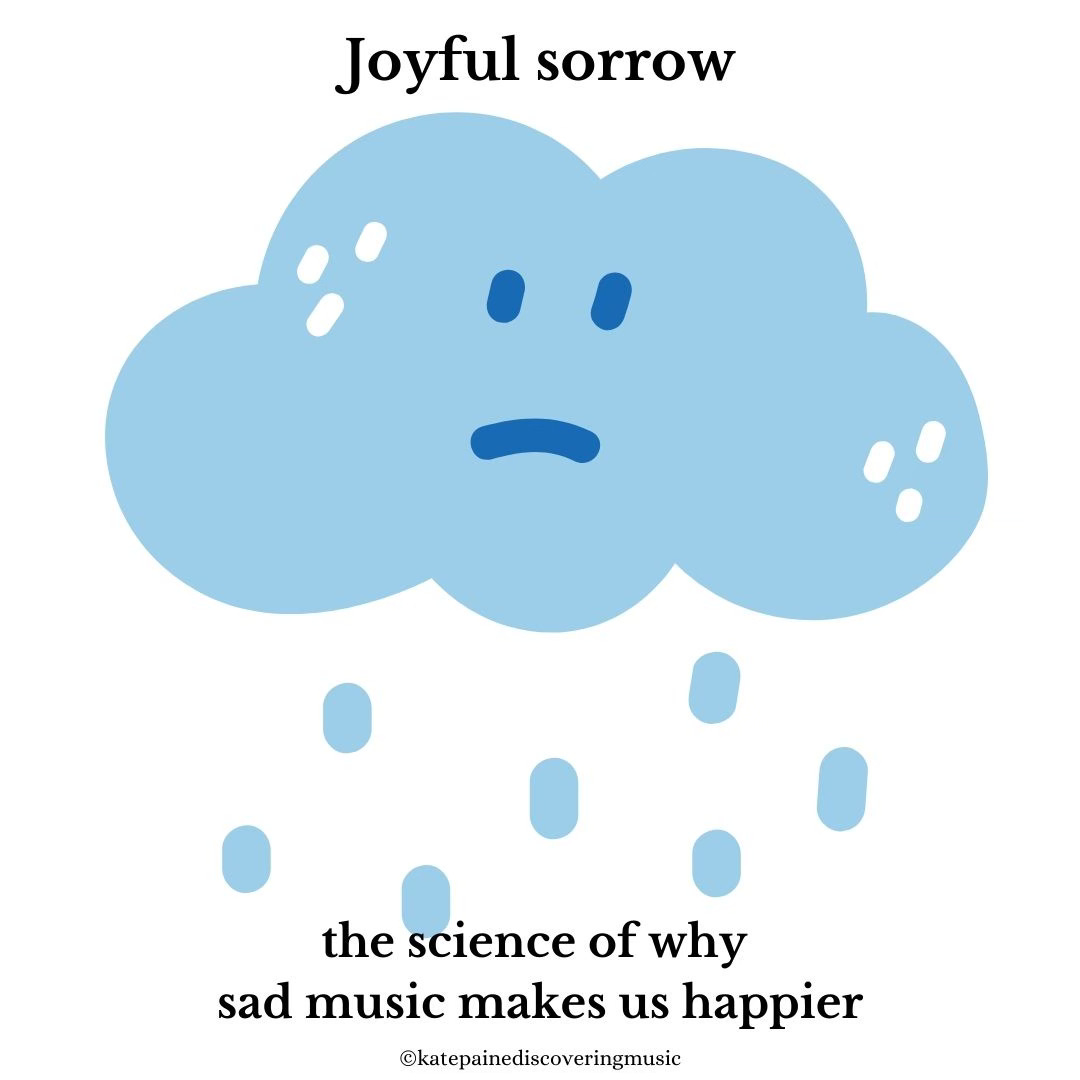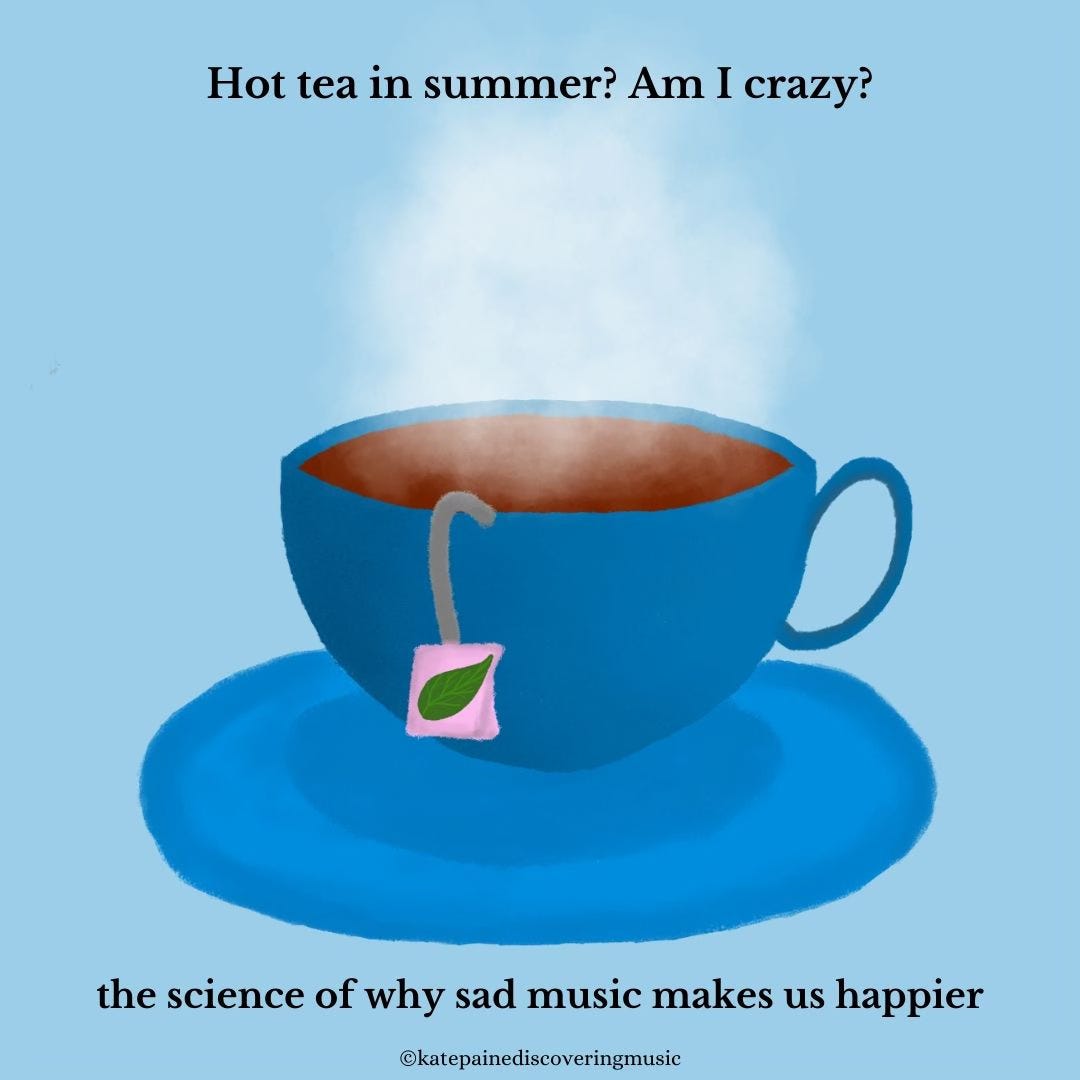Joyful Sorrow
The science of why sad music makes us happier
Hello music-loving friend,
Sometimes things can seem a bit askew or topsy-turvy, as if you must have the wrong end of the stick (if you’re not familiar with this idiom, you can check it out here: The Free Dictionary).
For example, I read that drinking hot tea in hot weather can be refreshing. My husband doesn’t believe me, but it’s true, promise! (It’s something to do with our sweating mechanism, the widening of blood vessels, hydration, and so on: Smithsonian Magazine).
Another example of something that on the surface seems counterintuitive is expending energy to make more, like going for a walk to make yourself feel more energetic (blood flow and oxygenation!) or taking the stairs instead of the escalator.
And if you’re looking for the ultimate in all things counterintuitive, you need only think of black holes and event horizons, which seem to make no sense at all (to pretty much everyone), but from which nothing, not even light, can escape. (See the 1997 movie Event Horizon if you feel like experiencing some of the terror of black holes, haunted spaceships and, to quote, ‘infinite evil’).
But I’m not here to talk about the vastness of space but rather music, sad music, to be exact, and the idea that listening to it can make us feel happier.
How music works: the connection between sad and happy
It’s a funny thing, this desire we have to listen to sad music when we’re feeling a bit sad or melancholy ourselves. But there are some good reasons for it.
The first is that it can feel like sad music is reflecting the emotions we’re feeling. It provides some validity, a good thing when you consider how easy it is to deny the extent of our own feelings or not admit them to anyone else.
Having them reflected and validated in this way makes you feel like you’re part of something instead of the only one on earth feeling this way (am I right?). After all, someone else has written the music you’re listening to and you can guarantee other people are listening to it, too. You’re definitely not alone; it’s a shared experience.
It’s also cathartic. You can safely wallow in the listening experience, letting the music become an expression of whatever it is you’re feeling. It’s as if the music is providing a safe space for you to exist in for the duration of the song or piece of music.
I know that at times I’ve found myself listening to the same songs or music over and over again until suddenly I haven’t needed them anymore (but it’s comforting to know that those songs/music are there waiting if I need them again). At the time they served a real purpose, almost the equivalent of a hug or an arm around the shoulders from someone not trying to fix things but simply content to be there.
Sometimes a song or piece of music can also help recall certain memories, and it’s this that I think can really encapsulate why we love to listen to sad music. It’s that potent mix of nostalgia and bittersweetness. It’s love and loss, joy and bitterness, happiness and regret.
You name it, in other words, but always a multi-faceted experience, that places sadness in the context of a bigger picture that includes all these things (and for more on this, I recommend seeing the animated movie Inside Out).
And that’s just like real life, don’t you agree?
Thank you for taking the time to read my post. If there's anything else you're curious about or would like me to explore further, please let me know!
You can comment on this post or send me a message at katepainediscoveringmusic@substack.com
Thanks, Kate ❤️



